Ghost Blog SEO: My experiences and results
I am publishing on a Ghost blog which attracts the majority of its readers from organic search. The Ghost CMS can be a great choice if you want to publish SEO-optimised articles, but it's not just sunshine and rainbows.

A few months back I wrote about my experiences of running a blog on Ghost CMS. This article will be specifically about the SEO pros and cons of using a Ghost blog.
I switched from years of using WordPress and publishing hundreds of articles with WP.
Because of these some parts of the article can feel like a Ghost vs. WordPress SEO comparison.
But my main purpose is to answer the question:
How good is the Ghost CMS for SEO?
But first, let's take one step back.
What is the Ghost blogging platform?
Ghost is an open-source platform designed to help individual writers reach their audience and build a relationship with them through its built-in newsletter.
The user interface and the whole setup of Ghost promote simplicity and deliver a great page experience with fast-loading pages by default.
Ghost is free if you choose to self-host your site and do every integration by hand (and update dependencies by yourself as well).
But if you are less technical you can choose the hosting plans offered by the team developing Ghost.
In a lot of ways, Ghost is similar to the most popular Content Management System in the world, WordPress.
But while WordPress is a swiss-knife and you can run webshops, magazines, membership sites, and much more with it, until then Ghost has a strong emphasis on publishing written content and you can not really turn a Ghost blog into anything else.
In this regard Ghost is a much more publishing-focused CMS than WordPress.
SEO Pros of Ghost as a CMS
My favorite thing about Ghost is its simplicity.
When you install a Ghost blog you got a package that is perfectly suited to enable you to publish SEO-optimized content.
Though Ghost is not perfect for every use case, if your main purpose is to publish articles that can drive organic traffic to your blog, then it has a lot to offer without additional hours of plugin searching and admin panel optimization.
1. Easy to modify On-Page SEO elements
You have the possibility to customize all of the important On-Page SEO elements of an article, starting with the SEO-friendly, readable URL address (1).
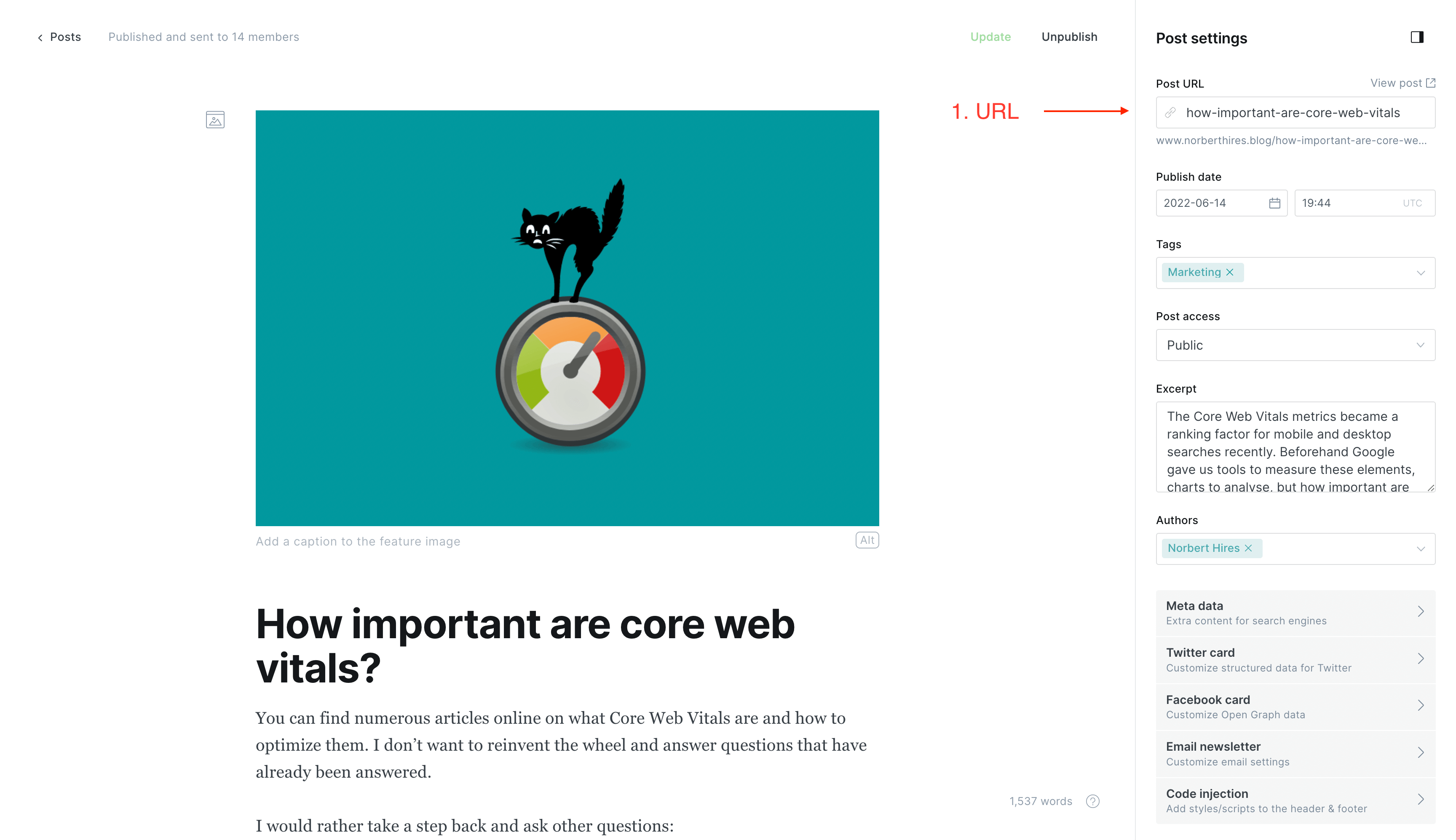
Besides URLs, you can easily change the
- page titles,
- meta descriptions,
- and canonical tags
of your articles.
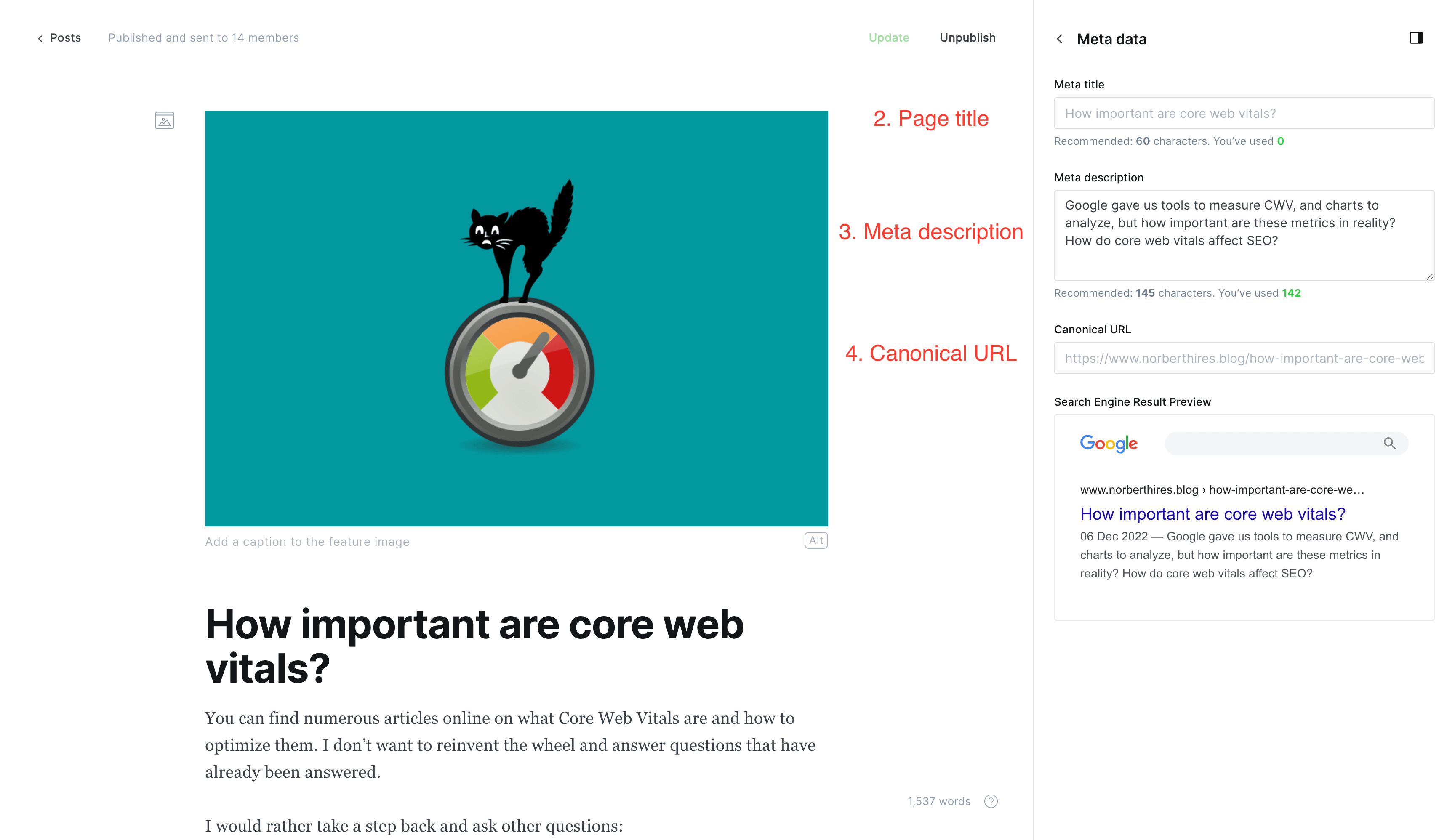
With a Ghost Blog, you don't need an additional SEO plugin to change the above-mentioned elements, they are by default available in the admin panel.
We also got a snippet (similar to popular WordPress SEO plugins) on how our article will likely look in Google Search.
There are suggested character limits in the admin panel (title: 60 characters, meta descriptions: 145 characters) which you can ignore, but it is a good reminder of the optimal length of SEO elements to avoid truncated appearance in the SERPs.
You can also differentiate the appearance of your articles in search, on Twitter, and on Facebook as well.
Recently I was experimenting with adding wider images as an og:image to better comply with Google Discover's at least 1200pc wide image requirement.
You can do all of this in Ghost.
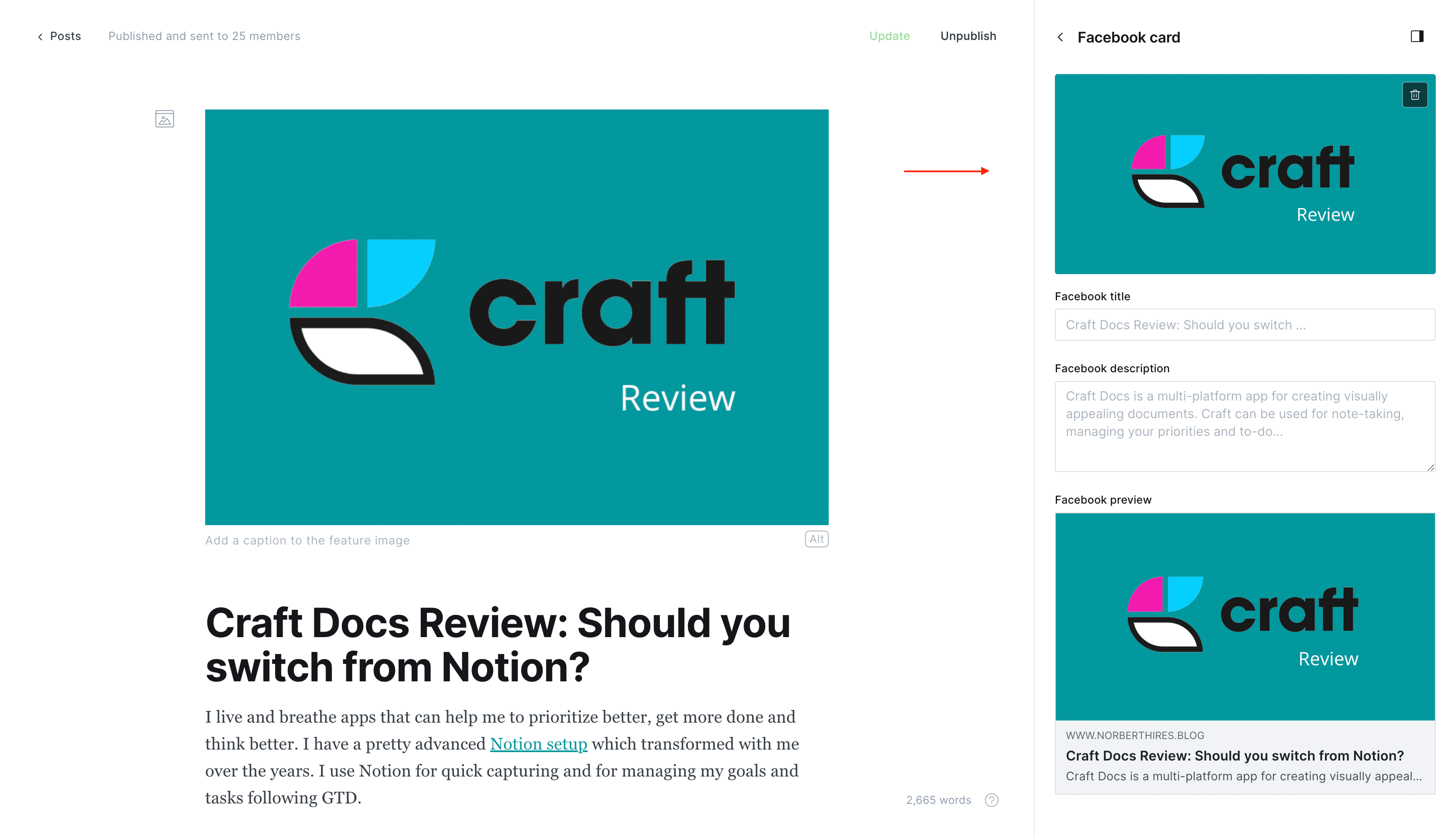
2. No need for plugins
The most frustrating part of publishing with WordPress for me was that I know I was able to do almost anything with the platform but to do anything I needed to install another plugin.
Adding Google Analytics to your blog?
Plugin.
Adding hreflang tags to your posts?
Plugin.
Optimizing page-speed?
At least two new plugins.
Ghost takes care of most of the functionalities which are important for SEO by default or they offer a workaround by enabling adding of custom codes to the head of the whole site and to the head of individual articles.
Adding Google Analytics to your Ghost blog?
Insert the code with Code Injection and forget about it.
Hreflangs?
Article code injections.
Optimizing page-speed?
You have a fast site out of the box. You don't need to spend time tweaking it.
Sure, you can use 3rd party providers and you can connect them with your Ghost blog through Integrations. But the majority of use cases we can have for SEO are already covered by the default setup of a Ghost blog.
The biggest advantage of this is mainly convenience. You don't need to spend countless hours reviewing and trying new plugins.
Also, it helps that you don't need to give a backdoor to plugin developers to your site if you are using Ghost.
3. Good Core Web Vitals Scores
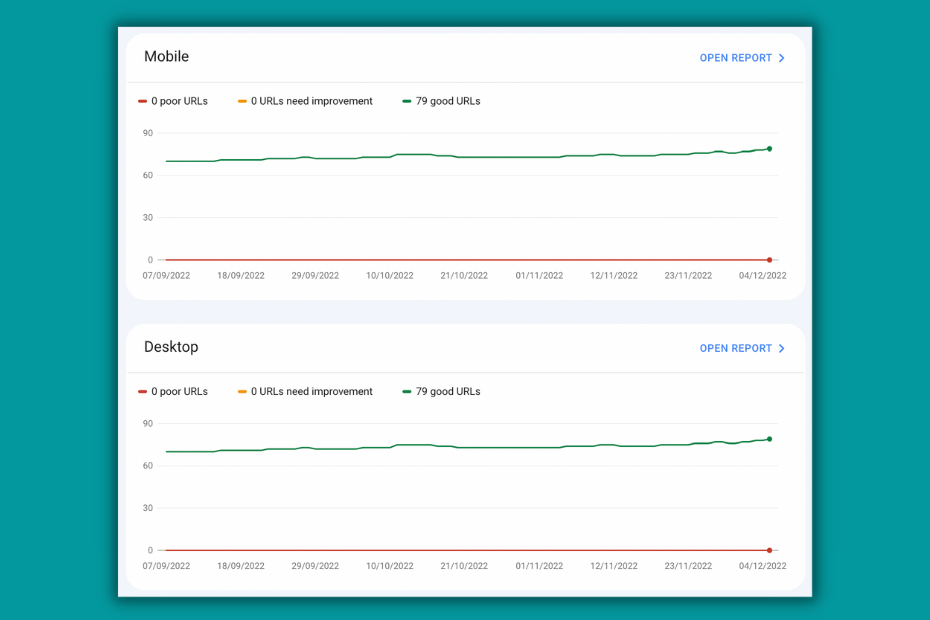
Will you automatically achieve "Good" scores if you choose Ghost as your blogging platform of choice?
As with everything in SEO:
It depends.
It depends on:
- your hosting provider
- the theme you are using
- changes on the Ghost CMS itself.
I have first-hand experience with messing up a good platform because I was incompetent in what I set out to do.
When I decided to try out Ghost I chose to self-host the blog with the cheapest provider I could just found. The Core Web Vitals Score was rather in the yellow, "Need improvement" section back then.
After switching to Ghost.org my Core Web Vitals metrics improved but I still had a Cumulative Layout Shift problem on the Desktop which put the majority of my Desktop URLs in the yellow zone again.
With the Ghost 5.0 update, the Ghost team put a lot of effort into optimizing page speed and CWW. Since then I have had a perfect Core Web Vitals score.
Though having good enough CWW scores still depends on another factor: the theme you are using. I am using the default Casper theme of Ghost, but with other themes maybe you can experience slightly worse performance.
4. Google Discover
After setting up my Ghost blog and publishing a few articles in the first week I was astounded that a new tab appeared in my Google Search Console reports: Google Discover.
I didn't have luck previously with Google Discover though I published 150+ articles with my WordPress blog. For some strange reason immediately after starting, I could get some small traction in Google's feed-based discovery engine with my Ghost blog.
I am not sure how I got into Google Discover but since then I am running some experiments to get the most out of this acquisition channel.
I think that the good Core Web Vitals scores on mobile (since Discover is a mobile-first product) and the hero images of my posts have something to do with the traffic I receive.
Driving traffic from an unpredictable channel like Google discover is not sure, even if you go forward with a Ghost blog, but my intuition tells me that Ghost gives you a close-to-perfect setup to be able to appear in Discover.
I bring some charts about my results later.
5. Tags

I optimized several WordPress blogs in the past as an SEO Specialist and the most-often committed annoying mistake was overusing Categories and Tags.
When users believe that SEO is adding as many Tags to the Tag Cloud as possible, over years it can generate thousands of useless pages, which are sometimes even cannibalizing content.
Ghost cut this issue shortly.
We don't have "Tags Clouds" instead of them we have Tags in Ghost that are the equivalent of Categories in WordPress.
You can make Tag pages SEO-friendly and if you are clever you can even target relevant keywords with them.
I plan to experiment with "author + books" tag combinations if I will have enough book reviews published by my favorite authors.
You can add unique descriptions to Tag pages, customize metadata, and even add custom images.
5. Tracking Conversions
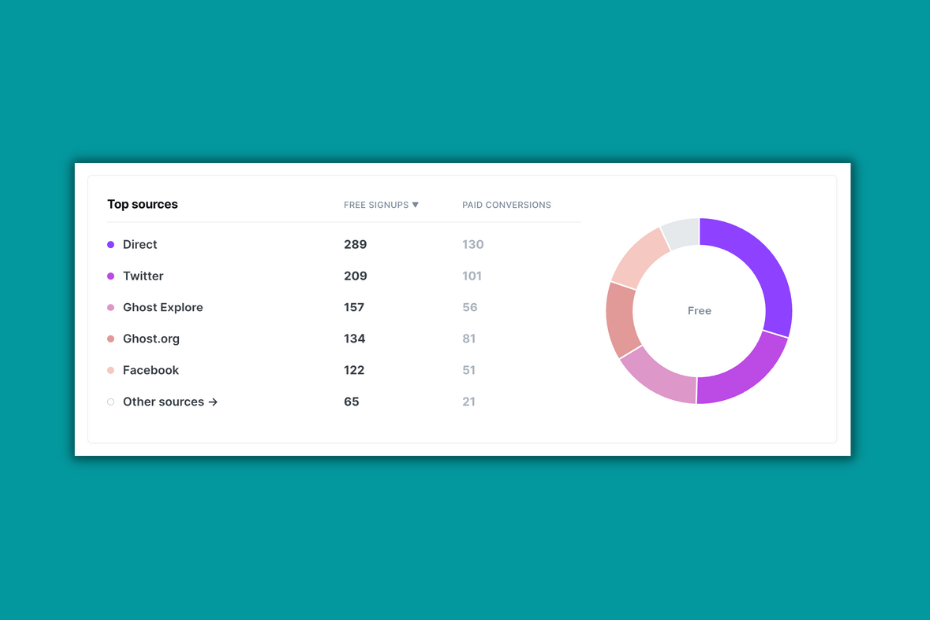
With the advent of Universal Google Analytics and the growing data protection concerns worldwide I have started to play with the idea that do I need a 3rd party analytics solution.
If you are writing an SEO-optimised blog, then for top-of-the-funnel metrics like clicks and impressions you can pull data from Google Search Console.
I am using Google Analytics only to track signups to my newsletter, but with the improvements of the Ghost dashboard, now we can see the sources and landing pages of conversion directly in the Ghost admin panel.
If your SEO-first blog has a similar user journey focusing on signups, then it is likely that you can have a pretty thorough overview using GSC and the default panel of Ghost.

SEO Cons of using Ghost
There are some cases worth considering when having a Ghost blog can make your publishing life harder.
1. Collaboration with editors

I am writing this blog all alone but I trained editorial teams to get the most out of SEO when publishing an article on a WordPress site.
The process is pretty straightforward there.
With plugins like Yoast SEO, you don't even have to rely on checklists and educate editors deeply about SEO.
You can tell writers to reach the "green light" with Yoast and they are ready to go.
Sure.
I know that half of the recommendations of Yoast are only nice to have, but it is still more productive at motivating editors to look at SEO.
PDFs and checklists got lost, but the red light of Yoast will still annoy editors.
With Ghost, you can create users with different permission levels, but making sure they use the platform in an SEO-friendly way is less straightforward.
Simply they don't have an information-rich context which are pushing them to include recommendations.
Editors even have SEO chops or they don't.
It is also worth considering, that WordPress is a popular platform. If you onboard a new writer/editor, the likelihood that they used WP previously is higher than that they ever saw the Ghost dashboard.
2. Missing functionalities to add Schema easily
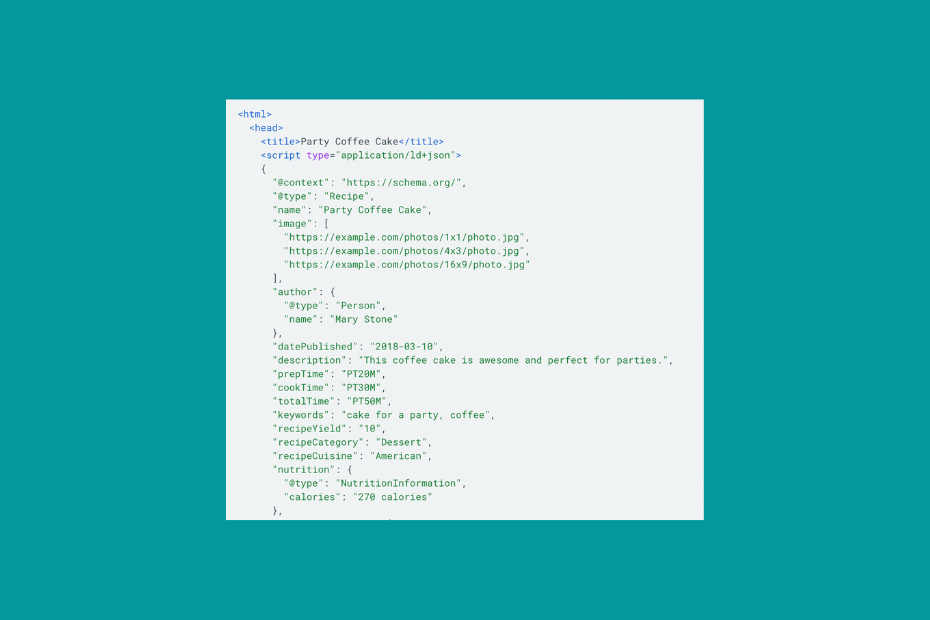
There are niches where having the relevant schema markup is a must to have a chance in the search engine result pages.
- Recipe Schema if you write a food blog.
- Review, Pros, and Cons schema if you have an affiliate site.
- F.A.Q schema if you want to enrich the appearance of your article in any niche.
...and we could continue the list.
There are schema plugins in WordPress and the most popular SEO plugins are also making it easy to add several types of schema markup to your articles.
In Ghost, you have the option to add schema (with Code Injection), but you have to write the schema or generate it with a 3rd party tool by yourself.
Again.
If you are familiar with SEO and know what Schema is all about, then it is a small inconvenience to juggle with code instead of clicking on a button.
But if you have a team publishing posts then it is harder to educate everyone and make sure they use valid structured data.
3. Smaller community, fewer themes
There are significantly fewer Ghost blog owners than WordPress site owners and this is true for the developers writing themes and custom codes for the platform as well.
These have two implications:
- The level of documentation is much less developed for Ghost blogs. If you have any problems, or errors with your WordPress site, the likelihood that someone else encountered the same error and wrote about the solution before is pretty high. But this is mostly a risk if you pick the self-hosting route with Ghost.
- There are fewer themes. If appearance is important to you and you want to browse thousands of themes, then you simply can not do that with Ghost. There are a handful of developers creating themes and the pool of free templates is limited.
My SEO Result with the Ghost CMS
I installed Ghost a little bit more than a year ago.
I published 75 articles on this blog since then.
The trick is that the majority of my articles are not targeting any keywords. I am rather writing about ideas important to me even if they don't have a keyword with search volume.
Just as outlined in this article:
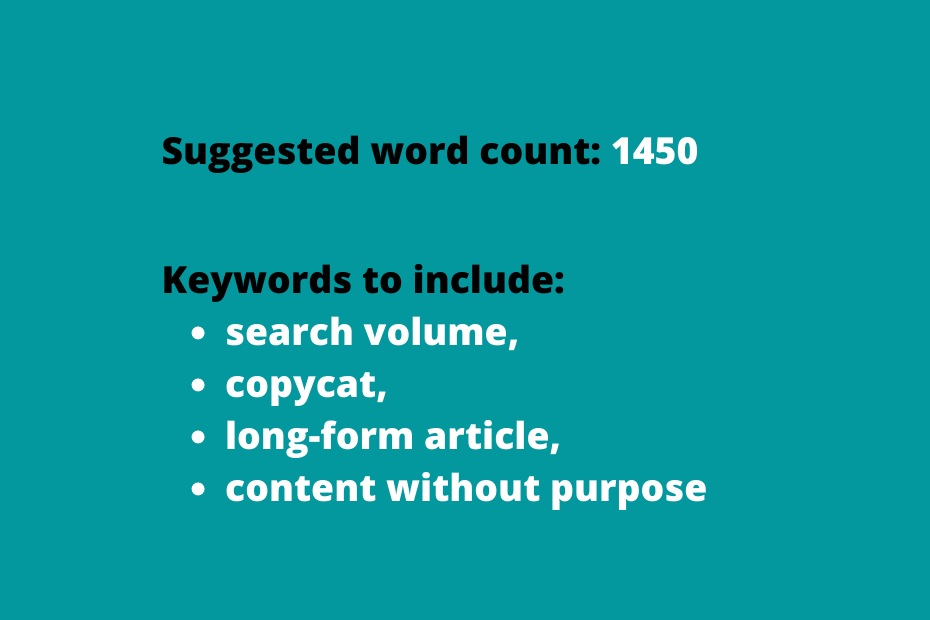
But still.
I am not a hypocrite.
If there is a match between the topic I want to cover and available keywords with search volumes, then I optimize the article to the end.
So here are my results:
Web Search
I published in batches during the first half of the year. because of my translated content experiment. Then since August, I am writing unique content not published anywhere else.
The results and growth are promising, though nothing extraordinary.
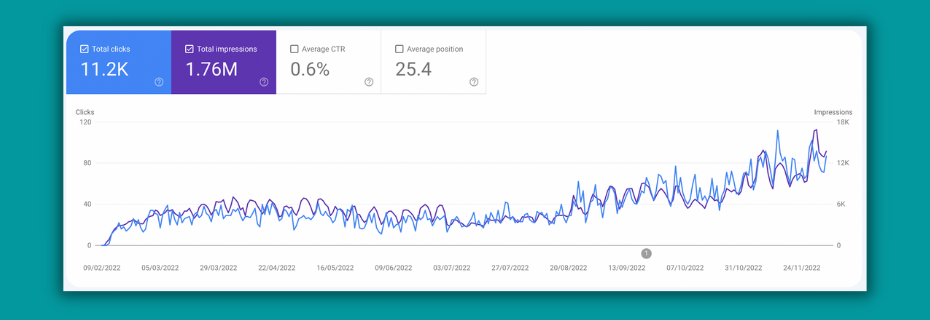
Google Discover
I have had some clicks coming from Google discover since the launch of the website. In proportion, it is not a crazy amount of traffic.
What is more interesting is that recently I am running a few experiments optimizing new articles to have the biggest chance to appear in Discover.
I have had some small success with this given the spike, but now I am trying to replicate the early successes to grow Discover into a reliable traffic source.
Let's see how it goes.
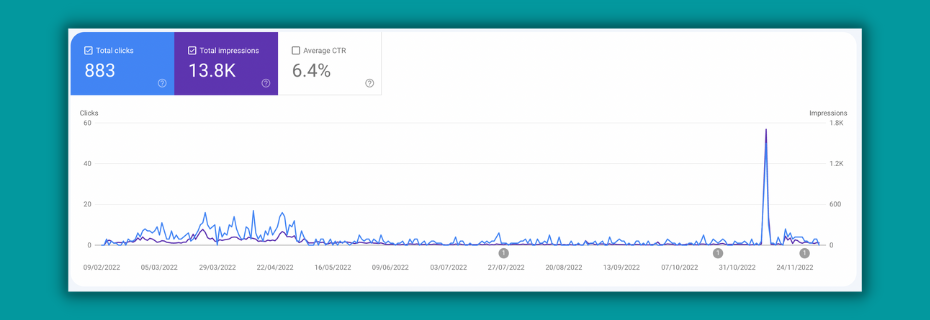
Summary of Ghost Blog SEO
Is a Ghost blog the right choice for you?
Ghost is a great platform to publish SEO-optimized articles without needing additional plugin searching or admin panel optimization. It's simple to use and free if you self-host, offering fast-loading pages and built-in newsletter functionalities.
If your goal is to drive organic search traffic to your blog, Ghost is a great choice though it is worth to consider alternatives like WordPress.
SEO Pros of Writing a Ghost Blog
- Easy to modify On-Page SEO elements
- Simplicity
- Fast-loading pages by default
- Built-in newsletter features
- Great for SEO-optimized articles
- Can measure the effectiveness of different marketing channels
- SEO-friendly by design
- Good Core Web Vitals
SEO Cons of Writing a Ghost Blog
- Fewer themes and even fewer free themes
- Smaller community than WordPress
- Collaboration with editors can be difficult
- Missing a proper SEO plugin like Yoast




